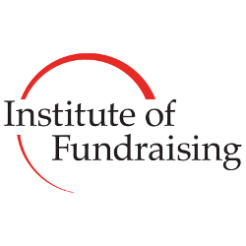The results of a survey into the views of smaller charities on proposed fundraising reforms has found that 72 per cent of respondents feel that their organisation’s trustees already “play a clear role” in fundraising strategy.
The views on smaller charities on fundraising reforms survey, conducted jointly by the Institute of Fundraising and the Small Charities Coalition, showed that the vast majority of small charity respondents already feel trustees “contribute to and set strategy for fundraising”.
Only a fifth of the 631 total respondents to the survey felt that greater trustee oversight on fundraising strategy would have ‘a great deal’ (6 per cent) or ‘quite a lot’ (15 per cent) of impact on their particular organisation.
The survey also found that over half of small charity respondents are concerned about the “administrative and cost burden” of a Fundraising Preference Service. Some 59 per cent of the respondents felt that an FPS would “increase administrative burden” and would increase the “cost of checking against a suppression list”.
Some 40 per cent of respondents also felt that a Fundraising Preference Service would result in a drop in donations, compared with just 29 per cent who felt that a FPS would result in “a better public image” for the charity sector.
Issues of public trust were also surveyed, with the results clearly showing that the effects of last summer have had a drastically different effect on smaller organisations than it has on the biggest charities. Nearly half of respondents said there had been “not very much” or “no” impact on their organisations, while 46 per cent said there had been “some” or a “great” impact.
Despite this, the survey showed that smaller charities are in almost general agreement that fundraising needs stronger sanctions.
Some 38 per cent of respondents felt that the best way to fund the Fundraising Regulator was the levy on charities which spend £100,000 or more a year on fundraising. However, 34 per cent of respondents felt that all the funding should come instead from the government.
Stephen Dunmore, interim chief executive of the Fundraising Regulator, said: “As we work to establish a new fundraising regulator, it’s essential that we hear and take on board views across the full range of fundraising organisations. Smaller charities make up the vast majority of the charities in the UK and have a significant role to play in helping to shape and inform the working practices of the new regulator”.
Peter Lewis, chief executive of the IoF, said: “These results drive home the importance of involving and informing smaller charities about the changes taking place. Fundraisers working in smaller charities perform amazing work, often with very limited resources, and so it is really important that the views of the whole of the fundraising sector are heard on these issues”.
John Barrett, interim chief executive of the Small Charities Coalition, said: “It is important to remember that the potential changes will have a disproportionate impact on smaller charities, as they will inevitably find it harder to comply than larger and better resourced charities. Therefore, the system needs to be affordable and compliance simple."
The full results of the survey will be presented at the IoF and Small Charities Coalition forum to be held in London this afternoon. The IoF will livestream the event from 2pm.









